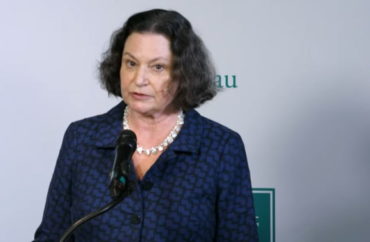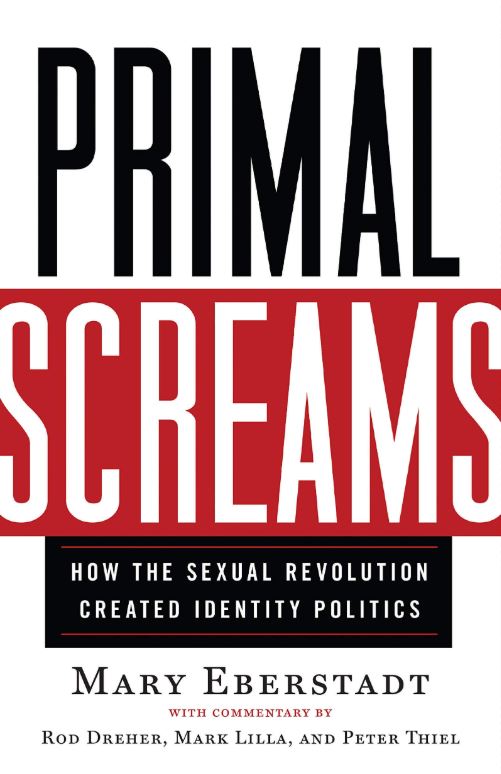
A conservative author has withdrawn from speaking at Furman University after a cancel culture campaign on campus engaged in smears against her.
“You can’t cancel me, I quit” was the title of Mary Eberstadt’s March 26 op-ed in The Wall Street Journal.
In it, she explains how she chose to withdraw from speaking at the private, South Carolina university “rather than indulge an angry mob.”
Eberstadt is author of the 2019 book “Primal Screams: How the Sexual Revolution Created Identity Politics,” and was slated to give a speech Monday at Furman at the behest of its Tocqueville Program.
So why did she pull the plug?
“As Liel Leibovitz put it recently in First Things, ‘The terrible power our pursuers hold over us, the power of intimidation and of setting the terms of the debate, dissolves the moment you realize you’re free to disengage.’ To which I add: Bullies have a right to protest, but that right doesn’t extend to dragooning others into untruths—including the untruth that people who join a hateful mob have any intention of listening to a speaker in the first place. They don’t, and the rest of us are under no obligation to help them live that lie by playing along,” Eberstadt wrote.
 Four major issues led up to Eberstadt’s decision.
Four major issues led up to Eberstadt’s decision.
One, as last month’s Furman Tocqueville Program speaker, conservative scholar Scott Yenor, gave his speech, “Scores of faculty and student protesters ‘silently’ objected inside and outside as he spoke. Three armed policemen were assigned to his protection. Within the auditorium, protesters lined the walls the professor had to pass, holding posters with ad hominem slogans and quotations of his taken out of context, staring balefully at him throughout,” Eberstadt wrote.
“Never in my life have I experienced a crowd so uninterested in learning, and so unwilling to hear,” Yenor reportedly told Eberstadt. “They were simply filled with malice.”
Eberstadt continued:
Soon after, something called the Cultural Life Program at Furman, which requires students to attend a certain number of public speeches, mysteriously decided to deny credit for mine unless the program inserted a different faculty interlocuter rather than the one who had invited me—presumably because the latter would have been too supportive. An article was posted by the independent online student newspaper, the Paladin, attacking the Tocqueville Program, applauding the public abomination of Scott Yenor, darkly noting that Catholics had been invited as speakers, and taking potshots at me. There’s no evidence that the indignant writer had read my books or even knew their titles. The piece accused me of perpetuating “dangerous” (dog whistle) myths, adding that students “demand to interrogate” (another whistle) the Tocqueville Program.
Posters advertising my speech disappeared en masse around campus the week before the event. They were replaced and disappeared again. Furman community members following social media and conversations on campus relayed independently that the protest was expected to be “substantial,” as two put it. They also informed me about a letter that was sent by some students to the Cultural Life Program’s committee, caricaturing my work and calling me names in an effort to revoke credit for attending my speech.
As I mulled what to do about such unexpected hostility, different calculations came to mind. What might be the odds of an ugly Yenor-style experience? Likely high.
Finally, Eberstadt cited the very slim but possible chance of violence occurring at her event.
On the bright side, she added, copies of “Primal Screams” are being sent to students in the Tocqueville Program, as well as two dozen more for the campus community.
Eberstadt concluded: “The book makes the case that social upheavals since the 1960s have led to compounded fractures on generations and that the implosion of family, real-life community and religion has weakened many people’s sense of identity. It further argues that the rise in mental and emotional problems, increasingly visible on campuses and on the streets, is a result. The students revulsed by free speech these days aren’t victims of that analysis but poster children for it.”
CLICK HERE to read an excerpt from Eberstadt’s ‘Primal Screams’ book
IMAGE: YouTube screenshot






Please join the conversation about our stories on Facebook, Twitter, Instagram, Reddit, MeWe, Rumble, Gab, Minds and Gettr.